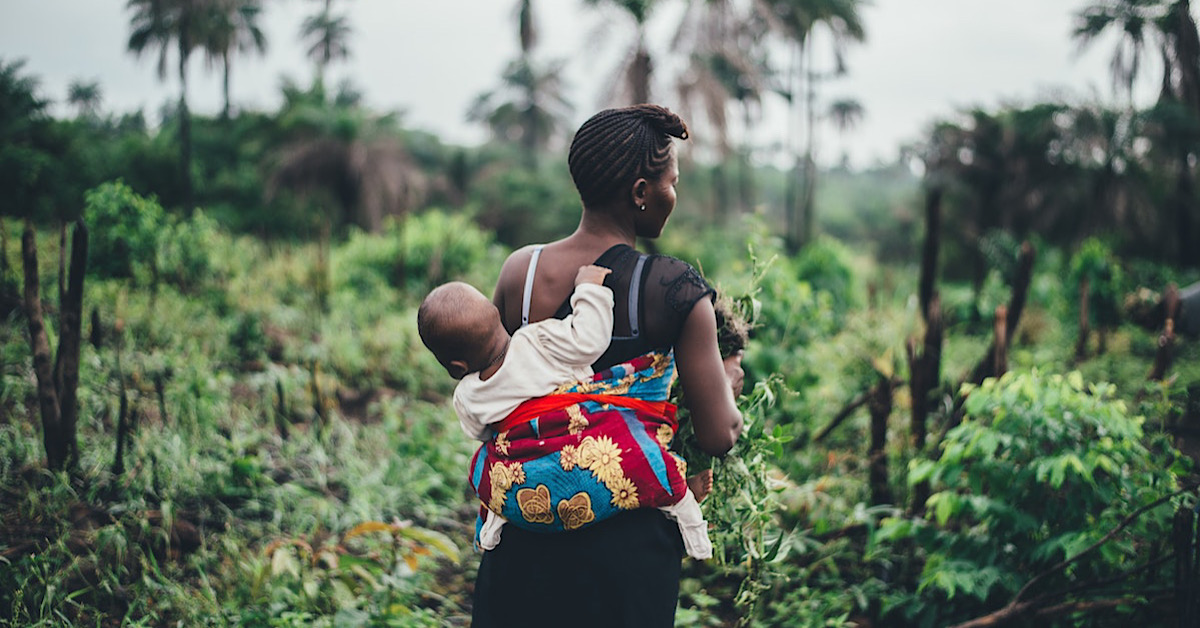
The Day a 19-Year-Old Mama With Twins Came Home
At 19 years old, Mercy* was widowed. Just weeks before the road accident, she had delivered two twin girls. Her husband’s death—and the fact Mercy was an orphan herself—meant she had just become their sole provider.
Not only that, Mercy had also been suffering from chronic illness for many years, debilitating her and leaving her permanently disabled. Misunderstood by her rural community, her disabilities left her vulnerable, and she began facing daily discrimination and marginalisation.
Meanwhile, I had recently resigned from my post as a registered nurse in the UK, and was following a path that led me through the continent of Africa, to Western Kenya.
Everything was opposite to what I had grown accustomed to. I kept picturing the resource-filled hospital wards back home—completely different to this poverty-stricken rural setting that I was standing within.
That’s when I saw her.
Mercy was crawling her way through the muddy tracks to ask for help from our team. She was exhausted from the physical strain in the midday sun.
As she came closer and closer, she kept checking her shirt—we realized tiny twins were bundled to her chest. Quickly we found out she hadn’t been able to eat properly in weeks, and was struggling to provide milk.
With no means to make money, their condition was becoming desperate—but I could clearly see how far this mother would go for her little ones.
Miraculously, Mercy had escaped gang violence and rape—a tragic reality for many in her situation. Due to the increasing risk Mercy and her precious twins were living in, they were immediately accommodated at our women’s shelter.
It was at that moment her nine-month journey towards receiving restoration and recovery began.
Mercy and her girls were cared for holistically, with an individualised treatment plan that served their unique circumstances and needs. Being kept together as a family meant Mercy was able to continue breastfeeding her young twins, and their attachment was never broken. With the help of medical care and nutritional support, all three became much stronger.
Mercy was also given counselling and equipped with further skills. A safer and more secure home was built for them to return to—and the holistic work continues even today, involving collaboration with Mercy’s wider family and local community.
One of the biggest privileges I’ve ever had was witnessing the moment when Mercy was reunified with her wider family and village.
Mercy’s elderly grandmother was standing there, arms wide open.
The sounds of their rejoicing will be something that stays with me forever.
Since then, I’ve become a mama myself.
It was completely new territory for me—I rapidly learned how sacrificial the role really was.
Being a mother is a gift that is unlike any other because it's an unmatched connection, a love that grows continually, and always wants more and better. It’s holding them tight after they’ve had a fall, and dusting them off when they get back up.
It’s seeing them cry and not always knowing how to fix it—so you sit on the floor and hold them and cry along beside them. It’s letting them go, letting them fail, and teaching them to never give up. It is giving them the security and confidence to do great things.
Being a mama is what Mercy has shown me—going without so that they don’t have to.
Every child deserves to grow up with this unparalleled love.
*name and photo changed
How can you help reunite vulnerable children with safe and loving families? Learn more here.
.......................
 ABOUT THE AUTHOR
ABOUT THE AUTHOR
Kelly Strong works to see individuals and families across the world reconciled and reunified with one another and with God. Kelly is a passionate advocate for the safeguarding of at-risk children. Her professional roles as a Registered Nurse, International Programme's Manager and her current role as the CEO of The Kenyan Children's Project, have given her extensive experience working internationally at the grassroots level; raising standards and implementing best practice. Kelly has tenaciously managed and implemented change of operations, enhanced safeguarding practice and improved collaboration across cultures and stakeholders.
